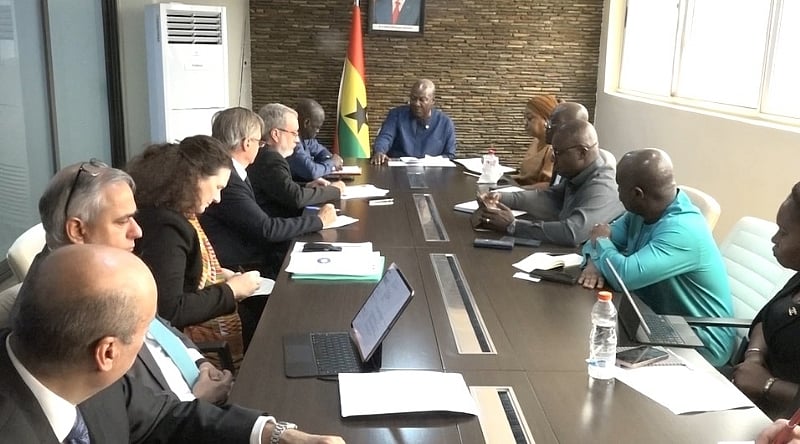The World Bank has reiterated its commitment to fostering economic development across Africa, with a particular emphasis on supporting crucial development initiatives in Ghana. This renewed focus underscores the institution’s recognition of the unique challenges and opportunities present in the region, particularly in the context of sustainable and inclusive growth. Ousmane Diagana, the World Bank’s Vice President for West and Central Africa, articulated this commitment during a high-level visit to Ghana’s President, John Mahama, in Accra on January 8, 2025. The visit served as a platform for strengthening collaborative partnerships and advancing development efforts throughout West and Central Africa.
Central to the World Bank’s renewed approach is the “better and bigger World Bank” concept introduced by the institution’s new president, Ajay Banga. This concept prioritizes enhancing the quality and effectiveness of the World Bank’s operations before focusing on expanding its scale. A key element of this “better bank” approach is the emphasis on country ownership, client partnership, and knowledge sharing. The World Bank recognizes the importance of empowering governments and local stakeholders to take the lead in development initiatives, leveraging the institution’s global expertise and experience to provide tailored support and guidance. This collaborative approach aims to ensure that development solutions are context-specific and sustainable, driven by the needs and priorities of the countries themselves.
The World Bank’s focus on Ghana reflects the country’s specific economic challenges and potential. Diagana highlighted the commonality of these challenges across the region, citing similar issues in Senegal and Kenya, particularly regarding resource mobilization and domestic resource financing. The institution is keen to leverage its expertise and experience in these areas to support Ghana in diversifying its revenue streams and strengthening its domestic resource mobilization capacity. This includes exploring innovative financing mechanisms and strategies to broaden the tax base and enhance revenue collection, reducing reliance on external financing and promoting greater fiscal sustainability.
The World Bank acknowledges the importance of the agricultural sector, particularly cocoa production, in Ghana’s economic landscape. Recognizing both the potential and the challenges facing this sector, the institution has conducted a comprehensive assessment, encapsulated in the Country Climate and Development Report (CCDR). The CCDR provides a detailed analysis of the opportunities and constraints facing the agricultural sector, offering specific recommendations for enhancing productivity, promoting sustainability, and addressing climate-related risks. The World Bank stands ready to utilize its existing programs and resources to support Ghana in implementing these recommendations, contributing to the growth and resilience of the cocoa sector and the broader agricultural economy. This support aligns with the broader goal of promoting sustainable and inclusive economic growth in Ghana.
Furthermore, the World Bank is committed to assisting Ghana in addressing its current economic challenges, particularly in the area of resource mobilization. The discussions during the high-level visit centered on exploring strategies to improve domestic resource mobilization, ensuring that resources are effectively channeled towards productive investments and sustainable development initiatives. This includes strengthening tax administration, broadening the tax base, and exploring innovative financing mechanisms to enhance revenue generation. The World Bank’s expertise in these areas can be instrumental in helping Ghana strengthen its fiscal position and create a more conducive environment for economic growth.
The emphasis on knowledge sharing and partnership underscores the World Bank’s commitment to working collaboratively with Ghana and other African nations to achieve their development goals. By leveraging its global network and extensive experience, the institution aims to provide technical assistance, policy advice, and capacity building support to empower governments and local stakeholders to drive their own development agendas. This collaborative approach recognizes the importance of local ownership and context-specific solutions in achieving sustainable and impactful development outcomes. The World Bank’s continued engagement with Ghana signifies its dedication to supporting the country’s long-term economic growth and development aspirations.


